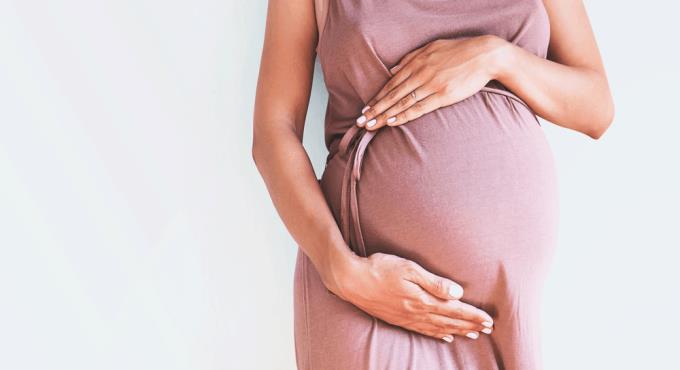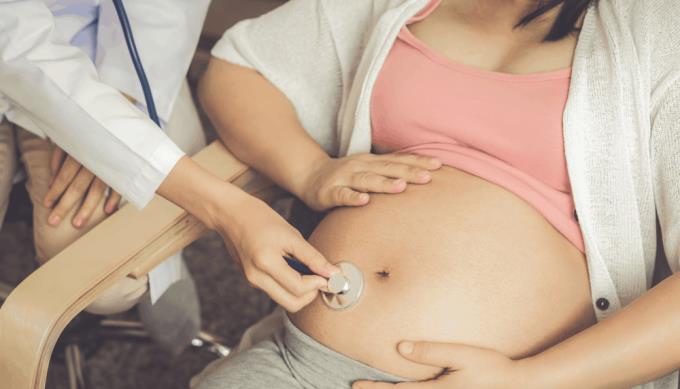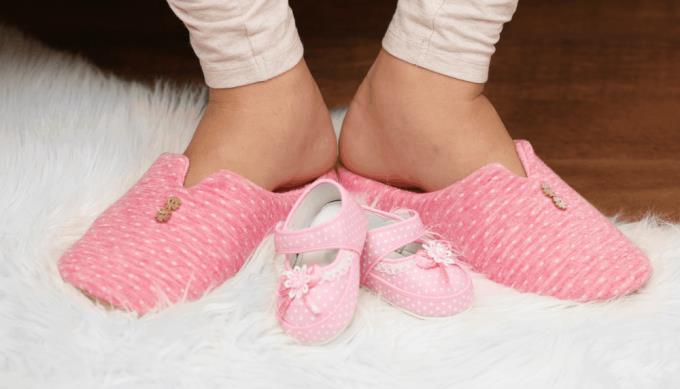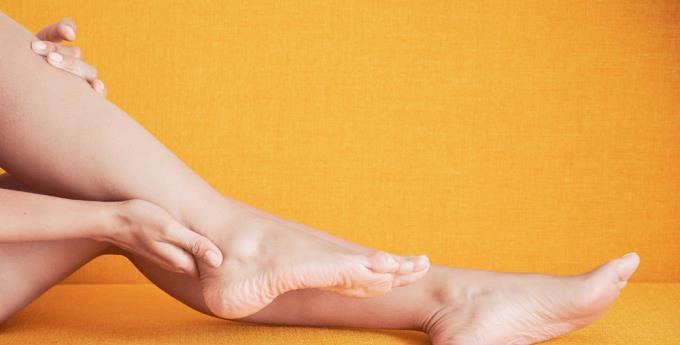Pregnancy means our body weight increases day by day. This gradually makes it difficult to walk and the risk of falling is entirely possible. The story of falling during pregnancy has become an obsession for many pregnant mothers. So how to ensure the safety of the mother as well as the fetus?
Surely all of us have experienced painful falls. For mothers who are unfortunate, tripping can cause very scary consequences. Therefore, how to make a safe and healthy pregnancy is extremely important. The following article of aFamilyToday Health will tell you how to prevent falls during pregnancy.
Misconceptions about falling during pregnancy
Falls always seem like something quite scary. And here are some misconceptions about what falls can do to you during your pregnancy:
Every fall has the potential to harm your baby's intellectual development: There are a few notions that falling pregnant mothers can cause babies to be born with mental health problems or kicks. reduced ability to learn. In fact, there are currently no studies showing a direct link between the fall of a pregnant mother during pregnancy and the development of any mental or emotional defect. Therefore, when babies are born with these defects, most of the reason is attributed to genetics.
Any fall can "kill" the baby: The truth is that the effects of mild to moderate falls cannot hurt the baby much. Even more severe falls are not necessarily harmful to the fetus. The reality is that it takes a really strong force to put it on the risk of miscarriage .
A fall during pregnancy hinders a spontaneous birth: You can still have a baby vaginally unless the trauma caused by the fall is severe or the fall is strong enough to affect your taste. the position of the fetus or the shape of the baby. For these cases, the doctor may suggest you to choose a caesarean section option .
You only worry if you fall on your stomach: No matter how you fall, the most important thing to keep in mind is the force of the fall. Pregnant mothers falling on their stomachs increase the risk for the baby in the womb. However, even falls that cause a collision in the head or even the buttocks can still have a negative impact on the baby if the impact force is strong enough.
Note that after stumbling, it is essential to monitor yourself closely as only you are the one who knows the best of your condition. If you notice that something is wrong, you will need to go to the nearest medical facility or hospital. Some falls may not seem to worry much at times, but can cause problems for pregnant mothers and babies.
The causes of falling during pregnancy
There are many reasons why you might fall while pregnant. Some of the reasons include:
1. The change of focus of pregnant mother

Your change of focus is one of the leading causes of falling during pregnancy. This could be the result of a sudden imbalance created by rapid weight gain during the second and third trimesters.
Practicing prenatal yoga and other exercises can be good suggestions to help prepare for this change. You can talk to your obstetrician about safe exercises and what types of exercises can best prevent you from falling.
2. Hormones during pregnancy
Pregnancy causes a hormonal imbalance in the mother's body. Some hormones play a role in relaxing the joints and ligaments of pregnant women to support the uterus during pregnancy.
The relaxation and relaxation of these joints will allow the mother's body to redistribute the weight around the pelvic area so that the baby's development is unobstructed and does not damage the joints. This can cause the joints to relax too much and lead to a more susceptible fall.
3. Inflammation
Also considered as one of the most common "side effects" of pregnancy, inflammation is considered the cause of falls during the second and third trimesters. This may explain that some pregnancy hormones can cause swelling and inflammation throughout the body, especially in your feet. Therefore, this situation can cause pain and imbalance in the mother, making it easier for pregnant mothers to fall.
4. Balance the weight of the body
During pregnancy, your body begins to rapidly gain weight, with most of it concentrated around the abdomen. This creates an imbalance in the posture and weight distribution of the body. This can be the cause of more tripping.
5. Blood sugar and blood pressure
Fluctuations in blood sugar, blood pressure, a weakened immune system and hormonal imbalances can make pregnant women dizzy, causing serious falls.
Can a falling fall harm an unborn baby?
Basically the fetus is protected in an amniotic sac, separate from the outside by a thin veil and abdominal cavity. This contributes to minimizing the danger of falling pregnant mothers. A fall will not be considered dangerous unless it has the following serious warning signs:
Stumbling leads to bleeding anywhere near the abdomen or vagina
Falls cause extreme pain
Mother leaks amniotic fluid after a fall
Fetal movement in the abdomen is reduced after a fall ...
If these signs appear immediately after falling during pregnancy, pregnant mothers should go to the hospital to have them checked immediately.
Check for injuries in pregnant mothers when falling

In the event that you experience a relatively serious fall and show signs of injury, your doctor may order the following tests:
X-rays to check if a bone is broken
Ultrasound to monitor your baby's heart rate and check the baby's position
Blood test to verify the health of both mother and baby
Urine test to ensure stable pregnancy health.
In some cases, you may be asked to stay in the hospital for about 1 day for the doctor to follow. The reason is that there are a number of dangerous condition warning symptoms that do not appear immediately after the pregnancy falls.
The effects of falling during pregnancy
Here are a few factors to keep in mind when assessing the severity of falls for pregnant women and the possible consequences.
1. Impacted location
The risk will be highest if the pregnant mother falls over in a tummy position. Falling back or falling on the knee can injure you, but the risk to your baby is not serious, provided the fall is not too heavy.
2. Age of mother
According to most doctors, pregnant women over 35 years old are at a higher risk of complications from falling.
3. Falling surface

If the mother falls on a hard surface, the risk of your baby being harmed increases greatly.
4. Stages of pregnancy
With the first trimester, the risk of falls affecting the fetus is minimal. At this stage, the baby is protected by the thick placenta, combined with the mother's pelvis to support the lower risk.
The risk increases slightly in the second trimester, if complications include: abdominal pain, bleeding, dizziness, spasms, decreased fetal movement. In these situations, mothers should go to the hospital for timely medical intervention.
The danger to the fetus is highest in the third trimester. At this time, the fetus is fully developed and has turned so the baby's head will be closer to the vagina. This fall can increase the risk of serious harm to your baby.
Measures to help pregnant mothers prevent falls

Here are some tips to help you avoid falling pregnant:
When riding stairs or elevators, stick to handrails to limit falls
Ask for help and should hold onto family or friends while traveling on slippery or rough surfaces
Rest after your exercise and make sure you get enough rest so you don't get tired
Foot soak in hot water and rock salt to help relieve muscle tension and fight inflammation
Use non-slip tapes or non-slip mats in bathrooms and other areas with wet surfaces
Absolutely avoid carrying heavy objects
Pay close attention while walking
Limit your use of the stairs as much as possible
Ask a husband or relative to massage the feet to help relax the muscles
Keep track of your blood sugar and blood pressure. Rest if your blood sugar is low and eat something to recharge before walking or moving on.
Falling during pregnancy can be something that few people completely avoid. However, understanding the causes and risks that can cause you to slip is also the best way to help you reduce the risk. If you accidentally fall, it is best to go to the hospital to be examined by a doctor to promptly intervene in the bad risk.
You may be interested in the topic:
Give first aid when a child has a fracture caused by a fall
Bruising after a fall: Don't take it lightly, lest you can't regret it















